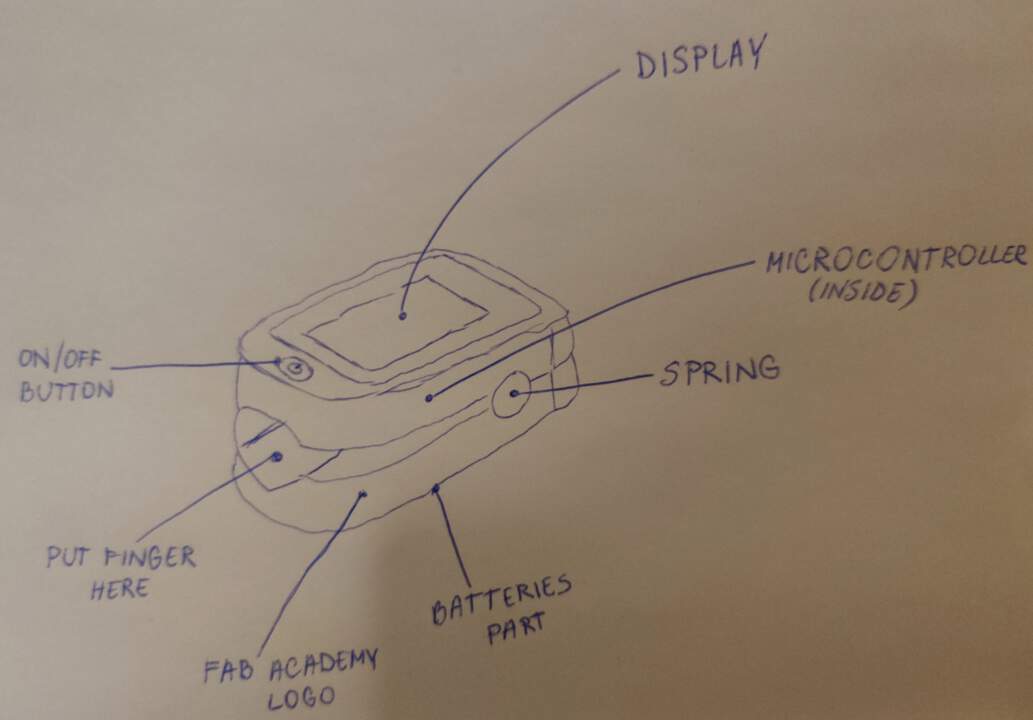WHAT will it do and WHY I want to do it ?
My inspiration for Fab Academy final project of course is related to COVID-19 situation. I hope that after few years I will have already
forgotten about COVID-19, but this medical device will always remind me about this time. And not only - I hope that the result of this
project will be usable in real life. Usability is a reason why I want to make not just a prototype for learning process, but also spend
time on accuracy tests - for example, the impact on accuracy from different kinds of sensors.
A pulse oximeter is a small device that looks sort of like a chip clip or a big clothes pin. You place your finger snugly inside it
and within seconds it lights up with numbers indicating your blood oxygen level and heart rate. Most healthy people will get
an oxygen reading around 95 to 98 percent. If a person has COVID-19 it will help to monitor if the person's health is deteriorating. Of course, I
understand that making medical gadgets is very sensitive and without CE certificate nobody will take it seriously.
For me the challenge is to answer
the question - is it possible to make a medical gadget that's as accurate as the ones that can be found in stores by myself?
And what about growth? I have some ideas how can I supplement this project, for example, (1) make a storage box and (2) add
more interactivity on display, for example, pulse line in real time.
❗ What am I worried about? I don't have a commercial pulse oximeter and that limits me from taking comparison tests, but maybe I can cooperate
with students that studies medicine. If I can't compare two different pulse oximeters it would lower the usefulness of my project since the
accuracy would not be validated.
